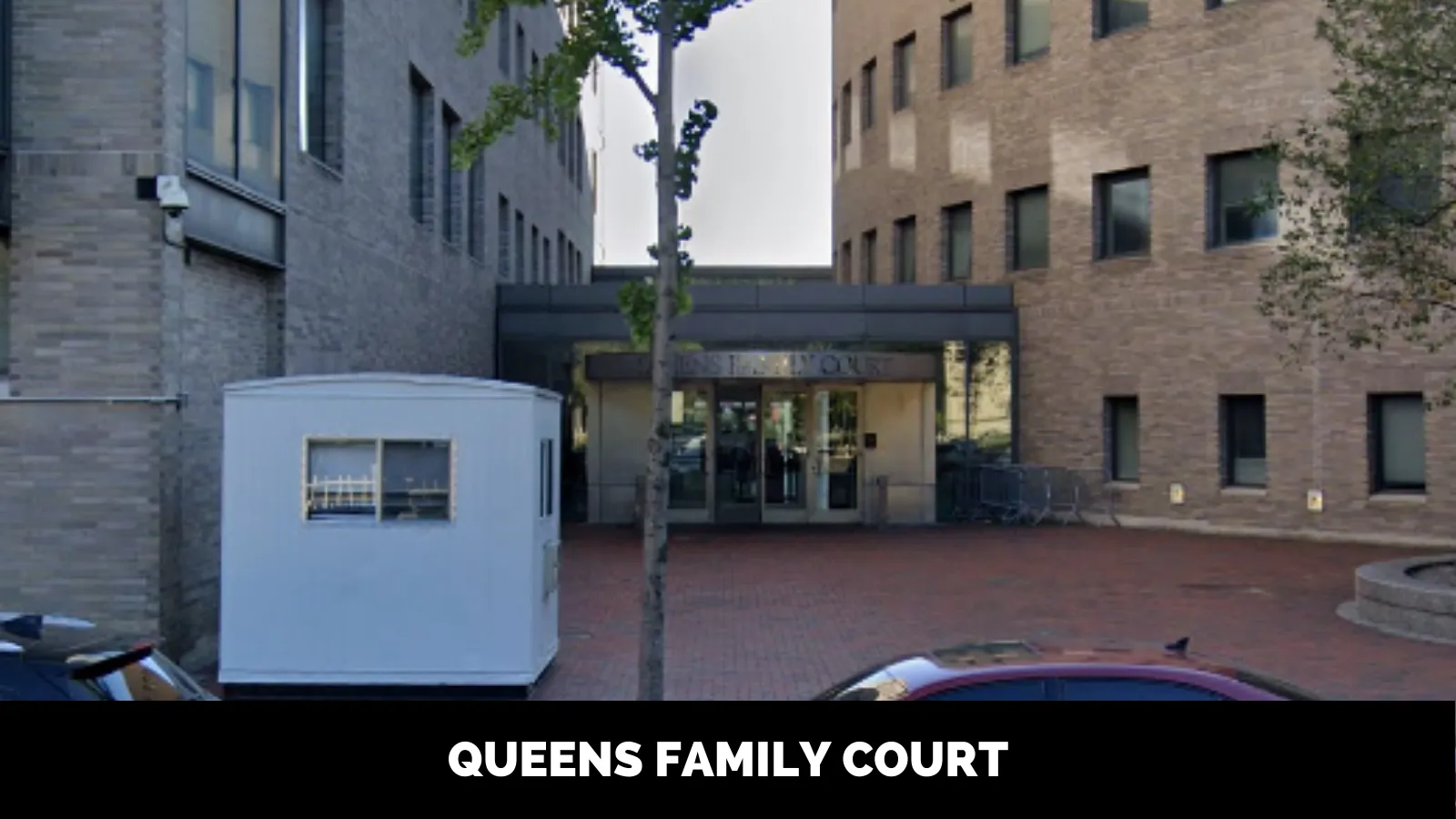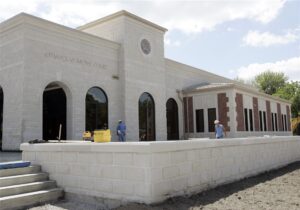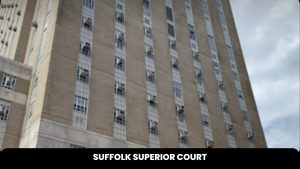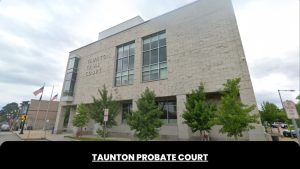Queens County Family Court
Introduction to Queens County Family Court
The Queens County Family Court is one of the several family courts located in New York. The family court is a specialized court that handles family-related matters such as divorce, child custody, adoption, and more. It is a court of limited jurisdiction that deals exclusively with family law issues.
Overview of Family Courts in New York
The Family Courts in New York are responsible for handling family-related legal issues such as divorce, child custody, child support, adoption, domestic violence, and other similar matters. These courts are dedicated to providing a fair and impartial forum for resolving family law disputes.
Location and Contact Information of Queens County Family Court
The Queens County Family Court is located at 151-20 Jamaica Avenue, Jamaica, NY 11432. The court’s phone number is (718) 298-0600, and its fax number is (718) 739-6480. The court’s hours of operation are from 9:00 AM to 5:00 PM, Monday through Friday.
Jurisdiction of Queens County Family Court
The Queens County Family Court has the jurisdiction to handle family-related legal matters within its geographic area. It has the power to make decisions and issue orders that are binding and enforceable.
Family Matters Handled by the Court
The Queens County Family Court handles a variety of family-related legal matters, including but not limited to:
- Divorce
- Child custody and visitation
- Child support
- Adoption
- Domestic violence
- Paternity
- Guardianship
Explanation of Family Matters
Divorce is the legal process of ending a marriage. In a divorce, the court may make decisions about property division, spousal support, and child custody and support. Child custody refers to the legal relationship between a parent and child, including decisions about where the child will live and who will make decisions on the child’s behalf. Child support refers to the financial support that one parent is required to provide for the care of their child. Adoption is the legal process of becoming the parent of a child who is not biologically related to you. Domestic violence refers to any act of violence or threat of violence that occurs between people who have or have had an intimate relationship. Paternity refers to the legal determination of the father of a child. Guardianship refers to the legal relationship between a guardian and a person who is unable to care for themselves, such as a minor or a person with disabilities.
Types of Hearings in Queens County Family Court
The Queens County Family Court holds several different types of hearings to resolve family law disputes.
Overview of Hearings
A hearing is a formal meeting between parties to a legal dispute, held in front of a judge or other decision-maker. Hearings in the Queens County Family Court are held in a courtroom, and the judge makes decisions based on the evidence presented and the law.
Explanation of each type of hearing
- Initial Appearance: An initial appearance is the first time a party appears in front of a judge in a family law case. The judge will provide information about the case and set a schedule for future hearings.
- Temporary Relief Hearing: A temporary relief hearing is a hearing to resolve emergency issues that arise before the final resolution of a case. For example, a party may seek a temporary order for child custody or support.
- Settlement Conference: A settlement conference is a meeting between the parties to a dispute, with the assistance of a mediator, to try to reach a resolution without the need for a trial.
- Trial: A trial is a formal hearing where evidence is presented and witnesses are called to testify. The judge makes a decision based on the evidence and the law.
- Final Hearing: A final hearing is the last hearing in a case, where the judge makes a final decision and issues a final order.
How to Prepare for a Hearing in Queens County Family Court
Preparing for a hearing in the Queens County Family Court can be overwhelming, but it is important to be well-prepared in order to present the best case possible.
Gathering and Organizing Evidence
Evidence is any information that is relevant to the case and can be used to support your position. Evidence can include documents, witness statements, and physical objects. It is important to gather and organize all relevant evidence in advance of the hearing.
Representation in Court
A party may choose to represent themselves in court, or they may choose to be represented by an attorney. An attorney can provide legal advice and representation in court, and can help ensure that the party’s rights are protected.
Preparing for Testimony
If a party is called to testify in court, it is important to be well-prepared. The party should be familiar with the facts of the case, and should be able to clearly and concisely explain their position. The party should also be prepared to answer questions from the judge and the other party’s attorney.
Proceedings in Queens County Family Court
The proceedings in the Queens County Family Court follow a set of procedures designed to ensure that all parties have an opportunity to be heard and that the process is fair and impartial.
Overview of Court Procedures
The court procedures in the Queens County Family Court include filing a petition or complaint, serving the other party, and holding hearings. The procedures also include the opportunity for the parties to present evidence and call witnesses to testify.
Explanation of each step in the process
- Filing a petition or complaint: The first step in a family law case is to file a petition or complaint with the court. The petition or complaint sets forth the party’s claims and the relief they are seeking.
- Serving the other party: Once the petition or complaint has been filed, the other party must be served with a copy of the document. This is typically done by having a process server personally deliver the document to the other party.
- Response: The other party has the opportunity to respond to the petition or complaint by filing an answer or a motion.
- Hearings: The court will schedule hearings to address the issues in the case. The parties will have the opportunity to present evidence and call witnesses to testify.
- Decision: After all the evidence has been presented, the judge will make a decision and issue a court order.
Representation in Queens County Family Court
A party in a family law case may choose to represent themselves or they may choose to be represented by an attorney.
Overview of Representation
Representation refers to the legal assistance that a party may receive in a court case. A party may choose to represent themselves, or they may choose to be represented by an attorney.
Explanation of each type of representation
- Self-representation: A party may choose to represent themselves in a court case. This is known as self-representation or pro se representation.
- Attorney representation: A party may choose to be represented by an attorney in a court case. An attorney can provide legal advice and representation in court, and can help ensure that the party’s rights are protected.
Evidence in Queens County Family Court
Evidence is any information that is relevant to a case and can be used to support a party’s position.
Overview of Evidence
Evidence can include documents, witness statements, and physical objects. It is important to gather and organize all relevant evidence in advance of a hearing.
Explanation of each type of evidence
- Documentary evidence: Documentary evidence refers to written or printed materials, such as contracts, letters, or emails.
- Witness testimony: Witness testimony refers to the oral testimony of a witness in court. A witness can provide firsthand knowledge of the events in question.
- Physical evidence: Physical evidence refers to tangible objects, such as clothing or weapons, that can be used as evidence in a case.
Testimony in Queens County Family Court
Testimony refers to the evidence given by witnesses in a court case.
Overview of Testimony
Testimony can be given in the form of oral statements in court, or it can be given in writing, such as through a sworn affidavit.
Explanation of the importance of testimony
Testimony is important because it provides first-hand knowledge of the events in question. It can be used to support or refute the claims made by the parties, and it can be used to help the judge make a decision.
Court Orders in Queens County Family Court
A court order is a formal decision made by the judge in a court case.
Overview of Court Orders
A court order is a legally binding decision made by the judge in a court case. It sets forth the terms of the resolution of the case and can be enforceable by the court.
Explanation of each type of court order
- Temporary Order: A temporary order is a temporary decision made by the judge in a court case. It is typically made in advance of a final decision, and it may be modified or revoked as the case progresses.
- Final Order: A final order is a permanent decision made by the judge in a court case. It sets forth the final resolution of the case, and it is typically not subject to further modification.
- Consent Order: A consent order is a court order that is agreed upon by the parties to a case. It sets forth the terms of the resolution of the case and is binding on the parties.
Modification of Court Orders in Queens County Family Court
A court order can be modified if there has been a change in circumstances that justifies a change in the terms of the order.
Overview of Modification
Modification refers to the process of changing a court order. A court order can be modified if there has been a change in circumstances that justifies a change in the terms of the order.
Explanation of the process of modification
- Filing a motion: A party seeking to modify a court order must file a motion with the court. The motion must set forth the grounds for the modification and the specific changes sought.
- Hearing: The court will schedule a hearing to address the motion for modification. The parties will have the opportunity to present evidence and call witnesses to testify.
- Decision: After all the evidence has been presented, the judge will make a decision on the motion for modification. If the motion is granted, the court will issue a modified court order.
Appeal in Queens County Family Court
An appeal is the process of challenging a decision made by a lower court.
Overview of Appeal
An appeal is the process of challenging a decision made by a lower court. It allows a party to ask a higher court to review the decision and determine if it was correct.
Explanation of the process of appeal
- Filing a notice of appeal: A party seeking to appeal a decision must file a notice of appeal with the court. The notice of appeal must be filed within a specified time period, typically within 30 days of the decision being issued.
- Briefs: The parties must submit briefs to the appeals court, setting forth their arguments and the basis for their appeal.
- Oral argument: The appeals court may schedule an oral argument, where the parties can present their arguments and answer questions from the judges.
- Decision: After considering the briefs and oral argument, if necessary, the appeals court will issue a decision. The decision may affirm the decision of the lower court, reverse it, or remand the case back to the lower court for further proceedings.
Alternative Dispute Resolution in Queens County Family Court
Alternative dispute resolution refers to methods for resolving disputes outside of the court system.
Overview of Alternative Dispute Resolution
Alternative dispute resolution refers to methods for resolving disputes outside of the court system. These methods include mediation, arbitration, and negotiation.
Explanation of each type of Alternative Dispute Resolution
- Mediation: Mediation is a process in which a neutral third party, known as a mediator, helps the parties to a dispute reach a resolution. The mediator does not make a decision, but instead facilitates communication between the parties and helps them find common ground.
- Arbitration: Arbitration is a process in which a neutral third party, known as an arbitrator, makes a binding decision to resolve a dispute. The parties agree to accept the decision of the arbitrator, and the decision is enforceable in the same way as a court order.
- Negotiation: Negotiation is a process in which the parties to a dispute negotiate directly with each other to reach a resolution. The parties can negotiate with or without the assistance of a mediator or other third party.
Queens Family Court Phone Number
The phone number for the Queens County Family Court is (718) 298-0600. This is the main line for the court and can be used to speak to a representative or to find information about a specific case.
Queens Family Court Case Lookup
The Queens County Family Court provides online access to case information through the New York State Unified Court System’s eCourts portal. To look up a case, you will need to provide the case number or the name of one of the parties.
Is Queens Family Court Open?
The Queens County Family Court is open Monday through Friday from 9:00 AM to 5:00 PM, excluding holidays. However, the court may be closed due to inclement weather or other unforeseen circumstances. It is best to check with the court before visiting to confirm their hours of operation.
Queens Family Court Judges
The Queens County Family Court is staffed by a team of judges who are responsible for hearing cases and making decisions in a fair and impartial manner. The court’s judges are appointed by the New York State Governor and are subject to periodic retention elections.
Queens Family Court Email
The Queens County Family Court does not have a public email address. If you need to contact the court, it is best to call the main line at (718) 298-0600 or to visit the court in person.
Conclusion
The Queens County Family Court is a vital component of the New York State court system, handling a wide range of family law matters. Whether you are seeking a divorce, a child custody order, or a resolution to another family law dispute, it is important to understand the process and to be well-prepared for your hearing. Whether you choose to represent yourself or to be represented by an attorney, it is important to gather and organize all relevant evidence, and to be prepared to present your case in court. If you are facing a family law dispute, the Queens County Family Court is here to help you find a resolution.
FAQs
What is the Queens County Family Court?
The Queens County Family Court is a New York State court that handles a wide range of family law matters, including divorce, child custody, and domestic violence.
What types of family matters does the Queens County Family Court handle?
The Queens County Family Court handles a variety of family-related legal matters, including but not limited to divorce, child custody and visitation, child support, adoption, domestic violence, paternity, and guardianship.
What types of hearings are held in the Queens County Family Court?
The Queens County Family Court holds several different types of hearings, including initial appearances, temporary relief hearings, settlement conferences, trials, and final hearings.
How can I prepare for a hearing in the Queens County Family Court?
To prepare for a hearing in the Queens County Family Court, it is important to gather and organize all relevant evidence, and to be prepared to present your case in court. You may choose to represent yourself or to be represented by an attorney.
Can a court order be modified in the Queens County Family Court?
A court order can be modified in the Queens County Family Court if there has been a change in circumstances that justifies a change in the terms of the order. A party seeking to modify a court order must file a motion with the court and attend a hearing.






